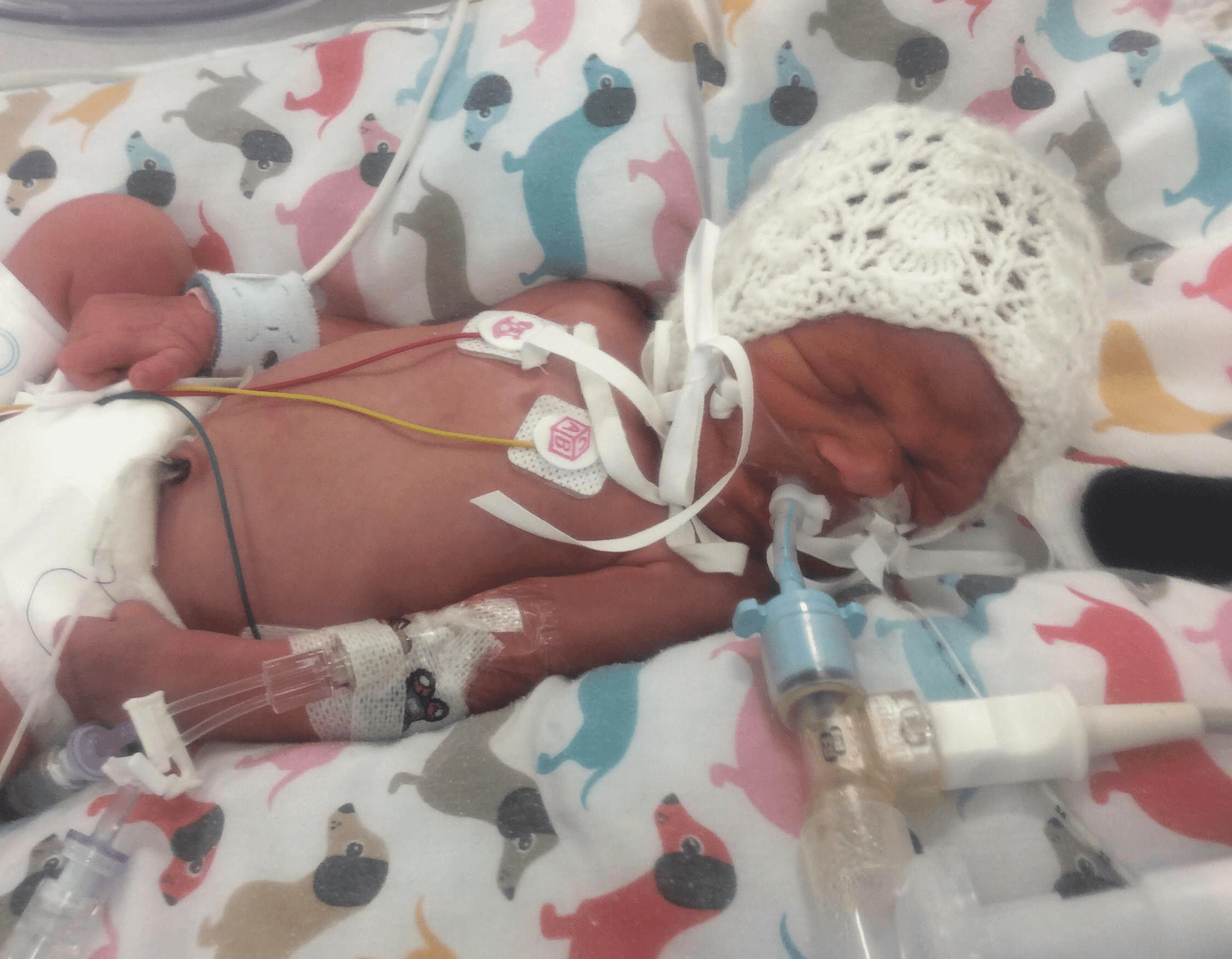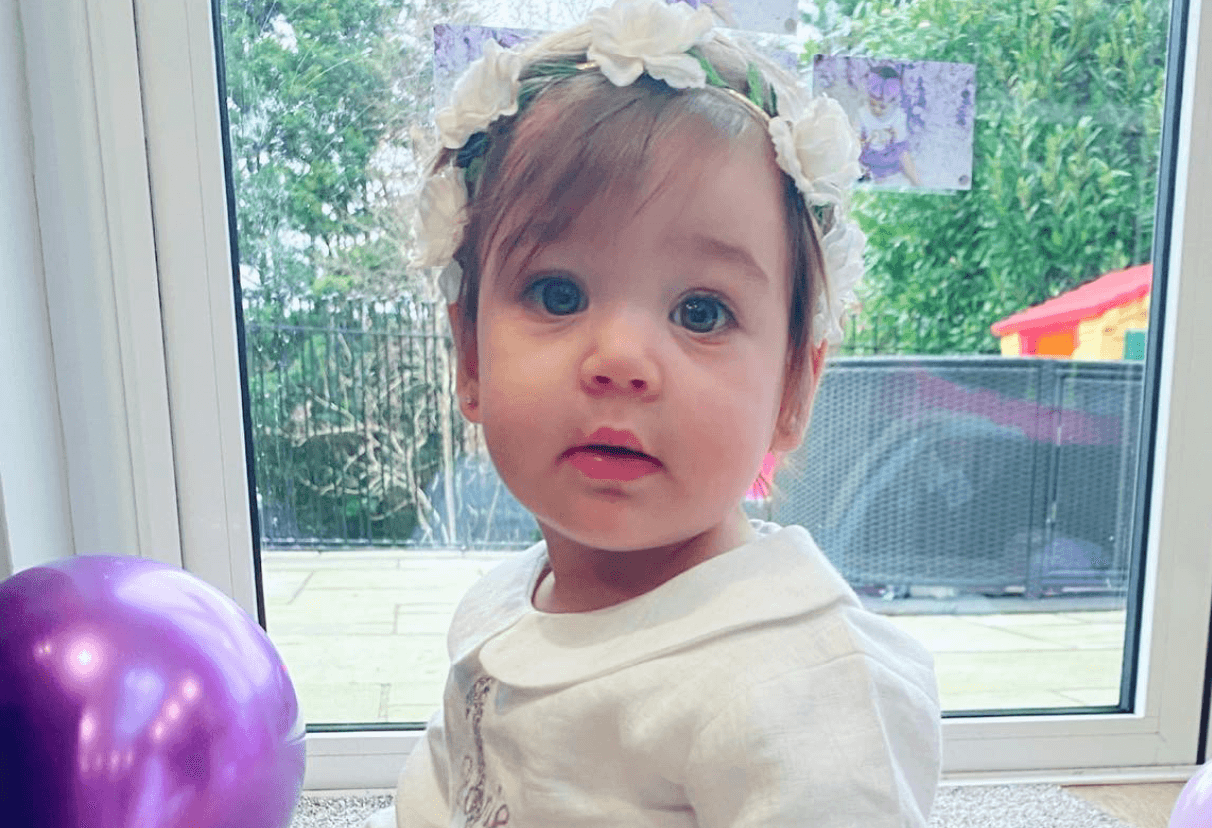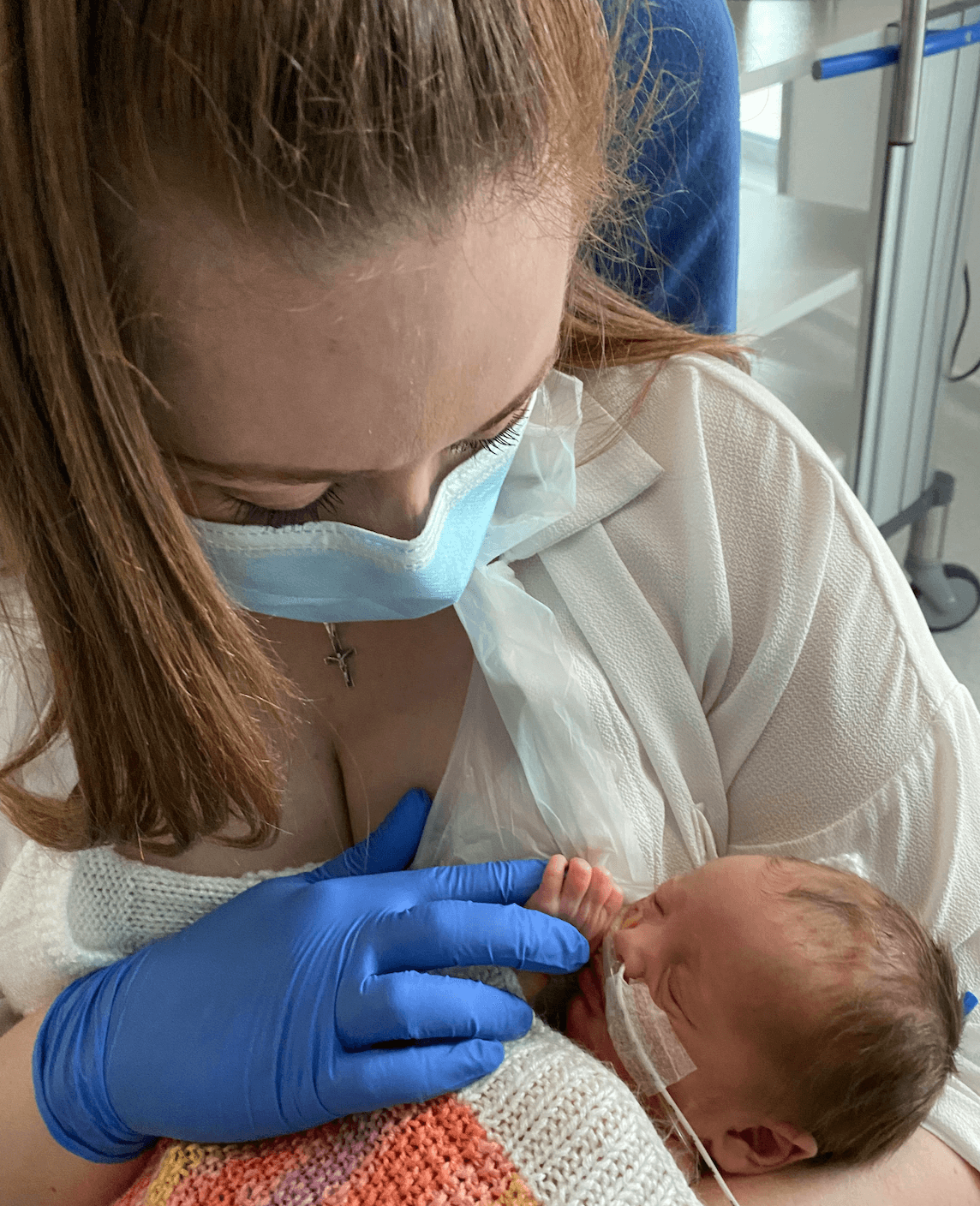Having a premature baby
Prematurity Awareness
Each year November’s World Prematurity Month shines a spotlight on the 90,000 babies born sick or prematurely in the UK.
As part of our partnership with the Early Years Alliance and in support of this year’s World Prematurity Day on the 17th of November, we are sharing the story of Ickle Pickle Bonnie - a story of a prem baby that will stay with you.
Bonnie’s story
In 2021, Gina was seven months pregnant with her second baby when she contracted COVID and was admitted into intensive care. Gina was pumped with magnesium sulphate for over 12 hours to keep her and her baby safe, as well as having steroids to help develop her baby's lungs. The following morning, she was rushed into the theatre and asked the consultant, “Will my baby be okay?”. He responded, “You need this c-section to save both your lives”.
Gina recalls: “What seemed like a few minutes later the consultant held up my tiny baby, I could see she was a beautiful baby girl – but I couldn’t touch her or reach out to her - she didn’t cry – I was surrounded by a room full of strangers.
They resuscitated and stabilised my daughter for about 45 minutes behind me. I had tears rolling down my face as I was too weak to move my head around to try and see her. I was assured she was doing OK but I had no idea. She was then taken to the neonatal intensive care unit. I just remember seeing a tiny figure being wheeled away in a life-saving incubator.
I was then moved to intensive care where one of the nurses handed me a brown envelope, inside was a picture of my tiny baby. Again the tears rolled down my cheeks as I held the picture, the nurse then gave me a knitted patch which she explained was a bonding square, which had been in my baby’s incubator - it meant I could smell her.
Over the next few days, I felt alone and scared. I was poked with so many needles that my veins started to collapse. My oxygen levels were dangerously low, I was on a ventilator and needed nebulizer therapy to help me breathe. I was bedridden for days and mortified when I had to have bed baths (I was only 36).
My baby girl wasn’t doing too well either - she was losing weight and struggling to breathe. She needed to be moved to a hospital that could provide a higher category of care. The specialist ambulance for premature babies transported my tiny girl to a hospital an hour and a half away that had the life-saving equipment she desperately needed.
After countless failed attempts of trying to physically see my baby, fourteen days after I gave birth, my local hospital called to let me know my tiny baby girl was being transferred back that afternoon by a specialist ambulance. I broke down, I explained I still hadn't met my baby and the news I had been longing to hear finally came as the nurse said I could come in to meet and hold my daughter. I held my baby in my arms for the first time. To say it was an emotional meeting is an understatement.”
Both Bonnie and her mum spent weeks in intensive care but both made it thanks to the lifesaving equipment and medical staff that saved their lives.
Our advice to parents of prem babies
Like Bonnie, over 7.5% of babies in the UK are born early and their parents often feel scared, overwhelmed, lost and helpless. A journey through neonatal care is a unique and tough challenge and the Ickle Pickles Children’s Charity urges new parents to accept offers of help and seek support.
Ickle Pickles’ advice to parents of prem babies who arrive unexpectedly is to still cherish the extra days, weeks and maybe months that you have had with your baby, and celebrate the time you have got with them – you can’t turn back the clock.
Experiencing neonatal care can have a huge impact on your mental health and can be incredibly stressful and emotional. Talking to other parents who are currently going through, or who have recently been through, similar experiences can provide you with a sense of community and understanding. With Ickle Pickles’ Peer Support Groups, the charity is there to listen and help new parents of premature or sick babies. Ickle Pickles organises regular coffee mornings where they offer support, coffee, cake, and a chat. These support groups can make all the difference and provide a safe and welcoming environment where families can ask questions, share their stories, and find a supportive community.
Join World Prematurity Month
November is dedicated to raising awareness of prematurity but it is also a month for celebrating those who have made it through difficult periods with their premature babies who are now thriving.
You can support vulnerable babies and families who have experienced neonatal care and take part in World Prematurity Day. Join in the conversation using #WorldPrematurityDay and tag @icklepicklescharity on social media. Together, we can make a difference for World Prematurity Month to raise awareness of babies like Bonnie and help others.



















.webp)
.webp)
.webp)
